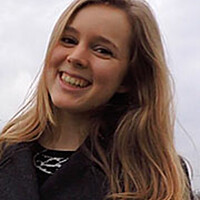Disney opens 'distinctly Chinese' Shanghai park
Loading...
The timeless magic of Disney was introduced to future Chinese fans on Thursday, with the grand opening of its Shanghai resort, its hard-won first theme park in mainland China. Disneyland's fourth and largest overseas location doesn't look like Disneyland anywhere else – and not just because 80 percent of the rides are new.
The mouse-eared company sought to incorporate elements of Chinese culture and history into the typically quintessentially American resort in a multi-cultural cooperation celebrated by political leaders of both countries.
"The resort captures the promise of our bilateral relationship," President Obama said in a letter which Disney chief executive officer Robert Iger read at the grand opening ceremony, according to Bloomberg. Senior Chinese government officials listened on as rain poured down, although one reassured attendees that a downpour symbolized "a good and auspicious start" in Chinese culture.
Disney owns 43 percent of the $5.5 billion dollar resort, with the majority stake held by its Chinese state-owned partner, the Shanghai Shendi Group, The New York Times reported. The Chinese government has taken an active role in planning the park, contributing to the nearly two-decade wait between Mr. Iger's first visit and opening day.
Chinese officials approved all the park's rides and encouraged the park to be designed with Chinese visitors of all ages in mind, according to The New York Times, taking into account China's longtime one-child policy. The hybrid results are spread over Shanghai Disneyland's 1,000 acres, including 99 acres of parks and gardens: In the "Garden of the Twelve Friends," for example, Thumper from Bambi, Remmy from Ratatouille, and Tigger from Winnie the Pooh are featured as the animals of the Chinese Zodiac.
Shanghai Disneyland visitors will also be introduced to all the Disney princesses at Disney's largest Enchanted Storybook Castle ever built, and take a virtual journey over global landmarks including the Great Wall of China on The Soaring Over the Horizon.
American visitors would note a number of other changes: Restaurants serve 70 percent Chinese fare – including eel over rice, and Peking duck pizzas – and "The Lion King" live show is completely in Mandarin.
"We didn't just build Disneyland in China; we built China's Disneyland," Iger said, according to the Los Angeles Times. "We want the people who visit here to feel welcome and comfortable. To have a sense that this is their park, imagined, designed and created just for them, from the ground up."
Disneyland first went international, and confronted the challenges that entails, in 1992, when EuroDisneyland, now Disneyland Paris, opened 20 miles east of Paris. Even as French intellectuals decried the arrival of "a cultural Chernobyl," enthusiastic crowds poured in. The park attracts 10.4 million people a year, more than the number of visitors to the Louvre or the Eiffel Tower, according to the L.A. Times.
Though well attended, Disney's international parks in Paris, Hong Kong, and Tokyo haven't made a profit in six of the past 10 years, Drexel Hamilton analyst Tony Wible told the Associated Press. The main advantage of the park could therefore be promoting the Disney brand and encouraging the sale of Disney movies toys, clothes, and books.
But even when Disney movies take off with Chinese citizens – "Zootopia" and "Captain America: Civil War" are currently box office hits in China – Chinese authorities weigh in as well. China's main military newspaper has warned that "Zootopia," a story about a rabbit police officer, was an American propaganda tool, according to Reuters.
Despite the sometimes uneasy blending of cultures, many Chinese citizens are eager to see what the arrival of Disney has to offer. "We know it's an American theme park, so we don't expect to experience much that's Chinese here. If we want a Chinese experience, we won't come to Disney," Sun Lei who came to the park for the soft opening, told the L.A. Times. "For those of us who have never been to the United States, this is our chance to have a taste of American culture."






